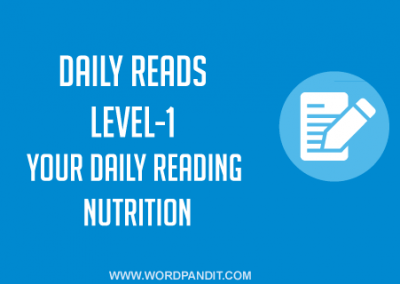Reading Suggestion-1
Article Name: Get up, stand up: Extreme nationalists, racists and bigots enjoy a renaissance across the world.
Author Name: Gautam Adhikari
Source: Time of India
Category: Politics and Society
Summary for this article:
In a society that’s constantly being attacked in the name of religion, caste and colour, is standing up for one’s right a wise and a safe option? Does democracy still advocate freedom of speech?
Well times are definitely changing!
The writer in this article says, how violent hatred in a civil society is spreading its roots to a wider extent and how in an immoral and a dishonest democracy, random and organised violence becomes the norm. An ordinary citizen in such a brutal society is met with a dark consequence.
The second half of the 20th century saw many breakthroughs in the field of science and technology. Although we did face famine, wars and murders, yet this was the period of peace and prosperity.
And then came the 21st century with its bleak promise of the future. With the liberal democracy in the retreat and free speech facing a gloomy situation; this century has seen a rise in the number of extremists, racists and bigots who have been encouraged by the people in power. The political parties either being dismissive or supportive didn’t do much to avoid the rise.
This melancholic scene definitely demands a separate space for the victims of the society to raise their voices against the injustices.
Words to learn from this article:
Verve: Displaying great energy
Conflagration: Conflict
Avert: To prevent something from happening
Pestilence: A contagious disease
Pandemic: An occurrence in which a disease spreads quickly affecting a large population
Bubonic plague: A serious disease spread by rats that resulted in many deaths in the Middle ages
Imperilled: To endanger someone
Apocryphal: Someone of doubtful authenticity
Renaissance: Rebirth
Revile: To verbally abuse someone
Complicit: To support in a crime or a wrong doing
Espouse: To express support for a cause or a belief
Reading Suggestion-1: Click to read full article
Reading Suggestion-2
Article Name: Proper protocol: On WHO’s antibiotics classification
Author Name: The editorial team
Source: The Hindu
Category: Science
Summary for this article:
Antibiotic resistance is becoming dim day by day resulting in the death of a large number of infants, due to no response to treatment, and various other serious issues. With the studies from the Indian Council of Medical Research(ICMR) saying that, resistance to antibiotics was found in only 50% of the patients, the revision of antibiotics classes by the WHO is a welcome step to prevent drug resistance.
WHO experts have grouped antibiotics into three categories: ACCESS – group of antibiotics that can be accessed all the time; WATCH- second choice; RESERVE -to be deployed as a last resort.
The main aim is to make the right antibiotics available to the patients at all times and to address the issue of antibiotic resistance.
Words to learn from this article:
Scrupulous: Taking extreme care to do the right thing.
Reading Suggestion-2: Click to read full article
Reading Suggestion-3
Article Name: For a calibrated approach to reforms
Author Name: KV Tirumala, Moin Afaque
Source: Business Line
Category: Society and Economy
Summary for this article:
India has been constantly critiqued as a slow liberaliser and high import tariff country. Does India need to think about this tag line that has been given to her? Or is it the people who need to understand that policy making is not an on the click process; things need to be pondered upon thoroughly to ensure that a policy formulation doesn’t end up doing more bad than good.
The writer in this article explains how the previous crisis and policy making teach us very clearly, “When knowledge is limited, the rule for policy makers should be, first, do no harm” as quoted by Dani Rorik
Be it India’s approach of having a closed capital account when the current account was open and going against the conventional wisdom during the 1991 crisis or the RBI not granting the Indian banks permission to invest in products like MBS, CDOs, and CDS thereby going against the expected wisdom (The subprime and Asian crisis). And then comes India’s stand on Trade liberalisation. The policy makers chose to ‘do no harm’ to start with and it all worked well.
It is always a better idea to rethink; the policy makers can abide by the adage to ‘do no harm’ till the right time comes for policy formulation, concludes the writer
Words to learn from this article:
Inexplicable: Something that is difficult to explain or impossible to explain
Circumspection: Taking extra care in doing something














Hi There,
It is really great work from you. Your inputs such as Daily reads and Daily quiz are so much helpful. You are abating our efforts by gathering different articles from different sources.Could you please consider the option of making questions out of those articles and keep it as quiz. It will be so helpful if you embark on that.
Thank you